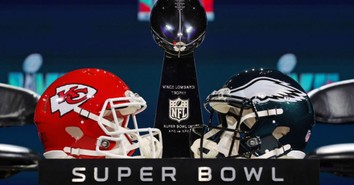Truck Driver Survives Missouri Tornado: ‘I’m Just Glad God Was with Me Tonight’

David Bell was in his truck on the side of a highway when a tornado struck Jefferson City, Missouri, Wednesday night. Houses collapsed around him. Poles snapped and transformers blew out. The tornado sent debris thirteen thousand feet into the air.
Bell had pulled over to the shoulder of Highway 54 with 44,500 pounds of soda in his trailer, not knowing he’d be in the path of the tornado. “That storm picked me up and slammed me down like I was nothing but a soda can,” he told CNN‘s John Berman yesterday.
He added: “It definitely gave me a new outlook on life. Very grateful that I’m alive. I should have been smarter and heeded the warnings. I’m just glad God was with me tonight.”
“Rats are taking over New York City”
I can hear skeptics across the country asking, “But what about the people whose homes were destroyed? If we praise God for the good, shouldn’t we blame him for the bad?”
There’s much they could cite in today’s news.
According to the United Nations, drug-resistant infections could kill ten million people annually by 2050. A ten-foot great white shark has been spotted in the Long Island Sound.
And the New York Times reports that “rats are taking over New York City.” Increased construction is digging up burrows, forcing more rats into the open. Mild winters and more trash from tourists are contributing to the problem as well.
We wonder how God can be all-knowing, all-loving, and all-powerful when the planet he made is so broken. But we can also cite evidence for great good in the world and ask: If we blame God for the bad, shouldn’t we praise him for the good?
A seminary class in two minutes
This week, we’ve been discussing God’s call to defend our faith in an increasingly hostile culture. In academic terms, we’re exploring what is known as “apologetics,” from the Greek word apologia, “to make a defense.”
When teaching this subject on seminary faculties and in churches, I have focused on three apologetic methods. However, I have also noted that none of these methods is so compelling that faith is unnecessary.
The empiricist points to his or her personal experience with God. For instance, when Jesus healed a man born blind and the man was asked to explain what had happened to him, he stated: “One thing I do know, that though I was blind, now I see” (John 9:25).
Sharing what Jesus has done in our lives may be our most powerful apologetic today.
Sharing what Jesus has done in our lives may be our most powerful apologetic today. But know that the skeptic might respond by pointing to the faith experiences of Muslims, Buddhists, Hindus, and so forth.
The rationalist uses logical strategies to defend the faith. For example, Paul showed the Athenian philosophers that “the God who made the world” would logically not “live in temples made by man,” then he quoted their poets in presenting Christ to them (Acts 17:24, 28). However, skeptics like Bertrand Russell and Richard Dawkins cite rational arguments to support their atheistic positions.
The evidentialist, as the name implies, cites evidence in support of our faith. For example, when John the Baptist sent his disciples to ask Jesus if he was the Messiah, our Lord pointed to the healings he performed as evidence of his miraculous ministry (Matthew 11:2–5).
We can argue for the inspiration and authority of God’s word by citing archaeological discoveries, fulfilled prophecy, internal consistency, and manuscript accuracy. But evidence must be interpreted and may not be compelling. After Jesus raised Lazarus from the grave, “many of the Jews . . . believed in him” (John 11:45), but the religious leaders “made plans to put him to death” (v. 53).
Three important facts
Three results follow.
One: Every Christian needs to know why we believe.
We are each called to “always be prepared to give an answer to everyone who asks you to give the reason for the hope that you have” (1 Peter 3:15 NIV). (For video content in which I address some of our toughest faith questions, see our YouTube series, “Biblical Insight to Tough Questions.” I most recently answered the questions: Is Hell real? How could a loving God send anyone there?) The more prepared we are, the more usable we are.
Two: The Spirit will never lead you where he cannot use you.
If he gives you an opportunity to explain and defend your faith, he will help you be faithful (Luke 12:11–12). He knows whether the person is more interested in your faith story, logical arguments, or Christian evidence. He will lead you to say what you need to say when you need to say it.
Three: Our role is not to win souls but to be faithful.
You and I cannot convict people of sin or save their souls. This is the work of the Holy Spirit (John 16:8–10). Our job is to be prepared and ready when he invites us to join him in leading people to Jesus.
Who is on trial?
When Christians are called upon to defend our faith, it can seem as though we are on trial and the skeptic is the prosecutor who seeks to embarrass us and prove that we’re wrong.
In fact, Jesus is on trial. The Holy Spirit is the defense attorney; Satan is the prosecutor; our Father is the judge; the skeptic is the jury. You and I are simply witnesses called by the defense attorney to the stand.
Our job is not to win the trial. It is to tell what we know and trust the Judge.
Can the Spirit call you to testify today?
For more from the Denison Forum, please visit www.denisonforum.org.
The Daily Article Podcast is Here!
Publication Date: May 24, 2019
Photo Courtesy: Getty Images/Reed Hoffmann/Stringer






